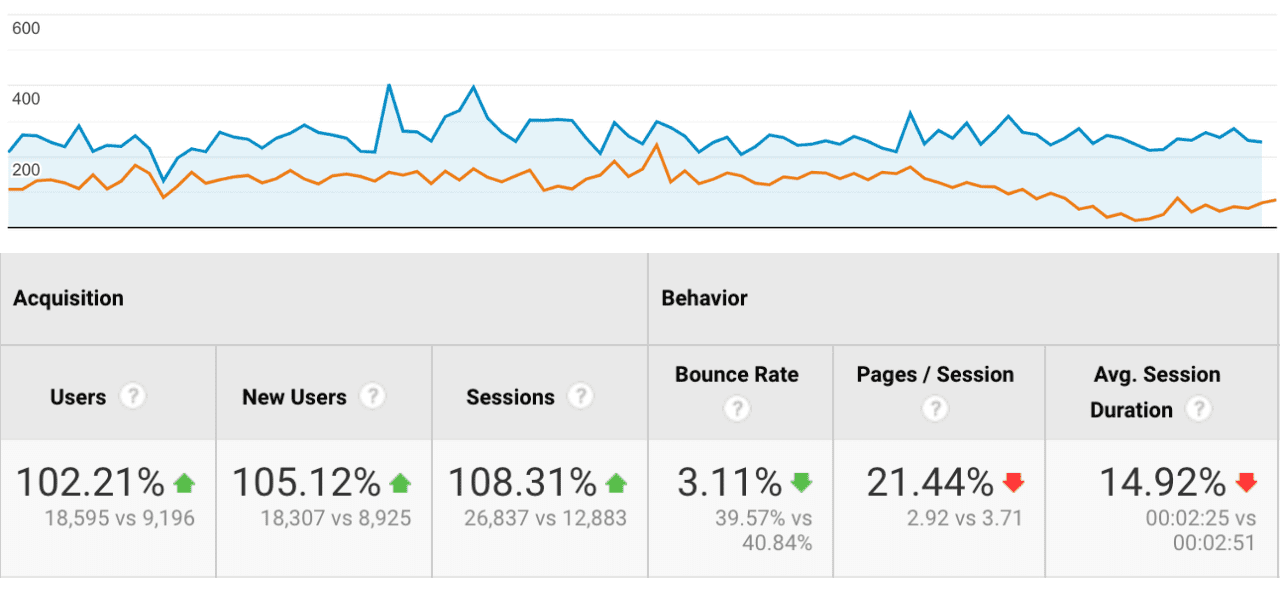In today’s digital age, marketing efforts are more critical than ever before. Brands need to utilize every tool available to understand how their marketing campaigns are performing.
Analytics is one of the most powerful tools brands can use to measure the success of their marketing efforts. According to studies, companies that use marketing analytics extensively experience a higher Return on Investment for their marketing efforts than the average, with 54% reporting such outcomes.
By analyzing the data generated by marketing campaigns, brands can understand how well they are resonating with their audience, what tactics are working, and what needs to be improved. Let’s explore how to use analytics to measure the success of marketing efforts.
Set Clear Objectives
The first step to measuring the success of any marketing campaign is to set clear objectives. Without clear objectives, it is impossible to understand what success looks like. Objectives should be specific, measurable, achievable, relevant, and time-bound.
For example, a brand’s objective might be to increase website traffic by 20% in the next six months or generate 500 leads from a marketing campaign.
Track the Right Metrics
Once you have set clear objectives, tracking the right metrics to measure progress toward those objectives is essential. The metrics you track will depend on goals and the type of campaign you are running.
For example, if your objective is to increase website traffic, you might track metrics such as page views, bounce rate, and time on site. If your objective is to generate leads, you might track metrics such as conversion rate, click-through rate, and cost per lead.

Use Tools to Track Metrics
To track metrics effectively, you need to use the right tools. Google Analytics is one of the most popular tools for tracking website metrics. It allows you to track a wide range of metrics, including traffic sources, user behavior, and conversion rates.
Other tools, such as social media analytics platforms, can help you track metrics for social media campaigns.

Analyze the Data
Once you have tracked the metrics, it’s time to analyze the data. Data analysis aims to identify trends and insights that can inform future marketing efforts. When analyzing data, it’s essential to look beyond the numbers to understand the story behind it.
For example, a high bounce rate might indicate that visitors are not finding what they are looking for on your website. On the other hand, a high bounce rate might be perfectly acceptable for a landing page designed to capture leads.
Make Data-Driven Decisions
Finally, use the insights gained from data analysis to make data-driven decisions. The data should inform your decision-making process, but it’s also essential to consider other factors such as your budget, timeline, and brand goals.
For example, suppose your data analysis indicates that a particular social media platform is not generating leads. In that case, you might decide to shift your budget to other platforms that are performing better.
Conclusion
In conclusion, analytics is a powerful tool that can help brands measure the success of their marketing efforts. By setting clear objectives, tracking the right metrics, using the right tools, analyzing the data, and making data-driven decisions, brands can continuously improve their marketing efforts and drive more significant results.
Does this sound daunting? Fully capitalizing on your analytics takes time, resources, and effort. Let the experts at ELMNTL take the reins and optimize your marketing efforts based on in-depth research on analytics. Contact us to get started.







